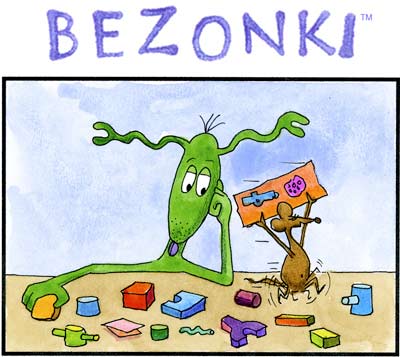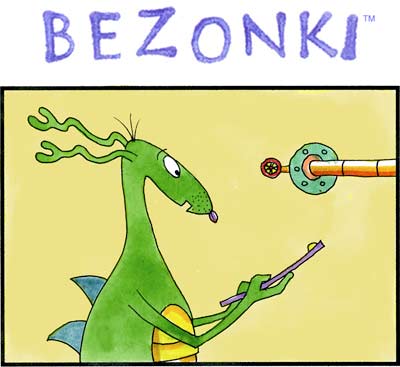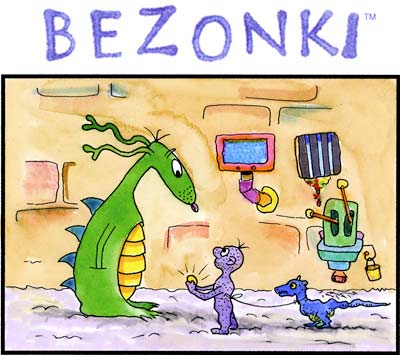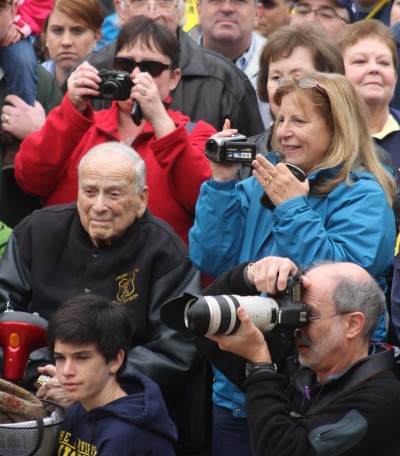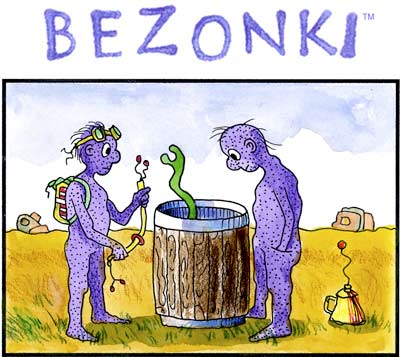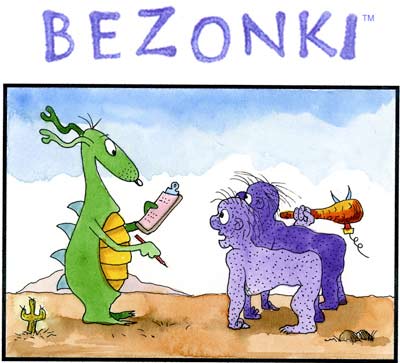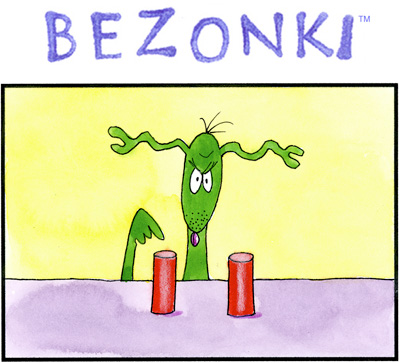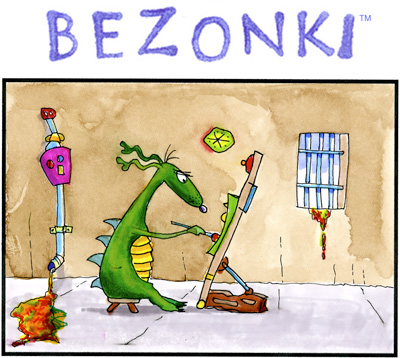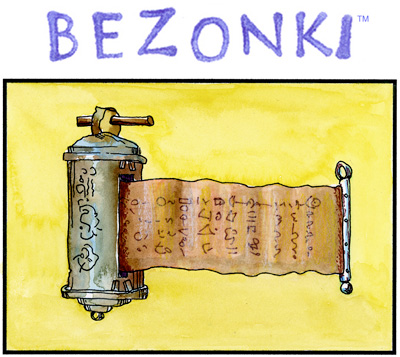Entertainment Section
Column: Michigan’s Beilein Gets It Right
It wasn’t that long ago that Michigan’s basketball program was not merely unsuccessful, but the shame of the athletic department, if not the university.
Bo Schembechler, then Michigan’s athletic director, fired basketball coach Bill Frieder after he found out Frieder had flown out to accept the coaching job at Arizona State just a few days before the NCAA tournament was to begin. Schembechler famously barked, “A Michigan Man will coach Michigan!” Assistant Coach Steve Fisher filled in, and the team “shocked the world” by winning Michigan’s first-ever national title in basketball.
But, on the eve of Fisher’s ninth season, he, too, was fired, because some of his players had been paid by a booster. Another assistant coach, Brian Ellerbe, was named the interim coach, which usually is a mistake – and this proved no exception. At Ellerbe’s first Big Ten tournament, in 1998, the Wolverines pulled a rabbit out of a hat to win it, and Ellerbe was named the permanent head coach. But three years later he was also fired, partly because of a bad record, but mainly because some of his players had been paid by the same booster.
The NCAA launched an investigation that lasted years. Tommy Amaker, the next coach, had to deal the investigation, the probation that followed, and subpar facilities. He never made the tournament, but he left Michigan’s program much better than he found it.
Former athletic director Bill Martin started raising the money and making the plans for a new practice facility and a complete renovation of Crisler Arena – which ultimate cost about $100 million when it was finished in 2012 – and hired Michigan’s current coach, John Beilein, to take advantage of it. Beilein came to Michigan with a strong resume, having taken three different schools to the big dance, but not a high profile. [Full Story]
Sunday Funnies: Bezonki
Column: Michigan Hockey’s Consistency Streak
Sports columnist Rick Reilly once wrote that weekend golfers invariably claim, “I’m a good golfer. I’m just not consistent.”
Well, he said, if you’re not consistent, you’re not a good golfer.
Americans are great at building things, and rotten at maintaining them. We admire winners and celebrities, but we overlook the loyal spouse and the honest accountant and the people who maintain our bridges – and that’s why they’re falling apart.
So, let this be a salute to consistency – that most unheralded virtue.
In 1984, Red Berenson took over Michigan’s moribund hockey program, which had not been to the NCAA tournament in seven years. Berenson thought it would be easy, but it took seven more years to get Michigan hockey back to the big dance in 1991.
Once they got into the tournament, they made it a point to stay there. Year after year, they suffered heart-breaking tournament losses, but year after year, they kept coming back. Finally, in 1996, they won Michigan’s first national title in 32 years – and they did it again in 1998. They’ve come close a few times since, but they have yet to win another.
This bothers Berenson, one of the most competitive men I’ve ever met. When he visited my class, I introduced him by listing his many accomplishments on the board. When he stood up, the first thing he did was point to the two national titles on the board and say, “That’s not enough. We should have more.” [Full Story]
Sunday Funnies: Bezonki
Column: Playing Hockey with the Pros
A few years ago – okay, a bunch of years ago – I bit on a bet I never should have touched.
I was writing for the Detroit News, and a top minor league hockey team called the Detroit Vipers played at the Palace. So, I got to thinking: just how big is the gap, really, between the pros, and beer league players like me?
Good question. And even better if I didn’t try to answer it. But, being the hard-hitting investigative journalist that I am, I had to go down to the Palace and find out. Bad idea.
I called the Vipers, and they said, sure, come on down to practice. Now, I couldn’t hear them laughing themselves silly when they hung up – but I bet they were. I should’ve known I was biting off more than I could throw up. [Full Story]
Column: The Legacy of Eddie Kahn
Editor’s note: A version of this column was originally published in the Feb. 18, 2013 issue of Michigan Today.
In the Michigan hockey program’s 90-year history, some 600 players have scored more than 10,000 total goals. But the man who scored the team’s very first goal, 90 years ago, might still be the most impressive one of the bunch.
He was the son of legendary American architect Albert Kahn, who built the most recognizable buildings in Detroit and Ann Arbor, almost all of which still stand. He pioneered the new discipline of neurosurgery, serving 22 years as chief of the department at the University of Michigan Medical Center. In his free times, he liked to fly planes, speak half a dozen languages, and hang out with folks like Gertrude Stein, Ernest Hemingway, and Charles Lindbergh.
But to his teammates, back in 1923, Eddie Kahn, MD ’24, was simply an exceptional college hockey player.
When he was in high school, however, you would have been wise to predict none of this. Certainly, his famous father didn’t. [Full Story]
Sunday Funnies: Bezonki
Sunday Funnies: Bezonki
Column: Book Fare
A conversation with Ann Pearlman, who gave readers around the world “The Christmas Cookie Club,” seemed appropriate for a December books column. But, it turns out her 2009 novel isn’t about Christmas. It’s about commitment.
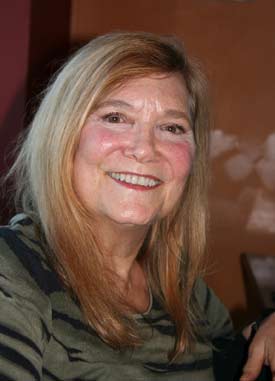
Ann Pearlman, in a photo taken earlier this month at Great Lakes Chocolate & Coffee on Jackson Road, where she chatted with columnist Domenica Trevor about her work: “I’m just doing things that are fun.”
Which, coming from the Jewish author of a memoir entitled “Infidelity,” makes considerable sense.
The fictional cookie club is hosted by narrator Marnie, whose day begins with preparations for a dozen friends who will be arriving at her Ann Arbor home that evening with food, wine and a story to accompany the ritual exchange of imaginatively presented cookies – with frequent dance breaks. But she’s also anticipating important news that evening from her older daughter and her husband in San Diego and, in a month, a grandchild from her 18-year-old, whose boyfriend is “a black ex-convict and aspiring rap star.”
Pearlman belongs to a real Christmas cookie club here in Ann Arbor, and reading her bestseller had me fantasizing about how lovely it would be put something like that together with friends whose company I treasure all year round and don’t see as often as I’d like. But then I thought again about the generally sluggish crowd I hang with and how the kinder ones would simply laugh at me. Righto. What say we just meet for pink drinks in January, hmm?
Such a lame crew, I suspect, would mystify Pearlman. Among her commitments: She’s a writer (seven published books). She’s an artist. She’s an adventuresome cook (her latest effort extends to homemade liqueurs). By her own account, the boundary between her family and her friendships is often indistinct. She has maintained a psychotherapy practice in Ann Arbor even as her writing career became firmly established. And the day we spoke, this mother of three and grandmother of four was looking forward to dancing the night away at the Necto’s Townie Party, despite a lingering cough from a bout of illness that put her off the cookies at this year’s meeting of the club. [Full Story]
Column: The True Cost of Football Tickets
This week, the University of Michigan announced an increase in the cost of “seat licenses” for football season ticket holders.
Before I dive into what all this means, let me explain what a “seat license” is, because, if you’re a normal person, it won’t make much sense.
A “seat license” is a fee that teams make their fans pay just to reserve the right to buy the actual tickets. They call it a donation – which is a stretch, since every fan apparently decided to donate exactly the same amount, or lose our tickets. But that allows us to claim it as a gift to a state university, and a tax deduction.
It’s hard to call that honest. Thanks to the latest hike, it’s hard to call it cheap, either.
In fairness, Michigan was the last of the top 20 programs, ranked by attendance, to adopt a seat license program, in 2005 – even though Michigan always finishes first in attendance. And the seat licenses started gradually: $250 for the best seats the first year, then $500 the second. They were nice enough to spare the folks in the endzone.
But this week Michigan pushed the seat license for the top ticket up to $600 each, and even the folks in the endzone will have to pay $150 per ticket, just for the right to buy them. In the past decade, the total cost of my two tickets on the ten-yard line has more than tripled, to over $1,700. But my seats are no better, and the schedule keeps getting worse.
It makes you wonder how we got here. [Full Story]
Column: Let’s End the Football Bowl Charade
College football’s regular season ended Saturday, with the various conference championship games closing out a 14-week season. The next day, Sunday, the 35 bowl games sent out their invitations to 70 lucky teams. But when you look a little closer at their bowl offers, you have to wonder if those 70 teams were really that lucky at all.
The people who sell bowl games need us to believe a few things: (1) Their games are rewards for teams that had a great season; (2) They offer players and fans a much-wanted vacation; and (3) The bowls are nonprofits, while the schools make a killing.
These claims are nice – and would be even nicer if any of them they were actually true.
Forty years ago, college football got by with just 11 bowl games. The 22 teams the bowls invited were truly elite, and so were the bowls themselves – like the Orange Bowl, the Sugar Bowl, the Cotton Bowl and The Granddaddy of Them All, the Rose Bowl. Back then, when your team got into a bowl game, you knew they’d done something special.
But in the past four decades, the number of bowls has more than tripled, to a staggering 35. The “bowl season” now stretches almost a full month, which is how many days you need to fit in such timeless classics as The Meineke Car Care Bowl, the Advocare V100 Independence Bowl, and the legendary Taxslayer.com Bowl. How many Taxslayer.coms fit into a bowl? It’s a question only theologians can answer. [Full Story]
Sunday Funnies: Bezonki
Photo Essay: Documenting Game Day
The public address announcer at University of Michigan football games always reminds the fans that they are part of the largest crowd watching a college game anywhere in America. What he could also brag about these days is that those same 112,000 or so people sitting in Michigan Stadium are making the game the most photographed event anywhere in America that day.
At the Nov. 10 University of Michigan game against Northwestern, local journalist Lynn Monson documented that no matter where you look on Game Day, someone has a camera raised. Here’s a small selection of the people who decided to freeze moments in time before, during and after the game won by UM in overtime, 38-31.
Sunday Funnies: Bezonki
Halloween 2012: Main Street Chills & Thrills
Editor’s note: Since 2008, Myra Klarman, a professional photographer based in Ann Arbor, has been sharing with Chronicle readers her images from the annual Main Street Halloween Treat Parade. [Take a look at her photos from 2011, 2010, 2009, and 2008 as well.] This year was a bit chilly, but trick-or-treaters – and Myra – were undaunted. We hope you enjoy the festivities – Happy Halloween!
Column: Remembering Budd Lynch
His parents named him Frank Joseph James Lynch – but everybody knew him as Budd.
He passed away this week, at the age of 95. No, you can’t call that a tragedy, but you can call it a loss – one that thousands are feeling.
In a week that included no Big Ten teams being ranked in the top 25 for the first time, the amazingly idiotic NHL lockout and, far worse, Jerry Sandusky’s sentencing, I’d rather spend my few minutes with you today honoring a man who lived as long as he lived well.
Lynch was born in Windsor, Ontario, during World War I. He got his start in radio in Hamilton, Ontario, but World War II interrupted his young career in 1939, when he volunteered for Canada’s Essex Scottish Regiment. Five years later, on D-Day, he stormed the beaches at Normandy, and survived unscathed. But a few weeks after that, a German rocket took his right arm.
When Lynch returned, he worked for the Red Wings, back at the old Olympia Arena – which was still pretty new at the time. Over the next six decades, he held a variety of jobs, but they all involved a microphone, the Red Wings, and his smooth, redolent voice. He saw his job as “simply relaying information to the crowd, not to act as a cheerleader.” He was a pro’s pro. [Full Story]
Sunday Funnies: Bezonki
Column: Notre Dame Sells Out Rivalry, Fans
The only constant is change.
Yeah, yeah. We know that – and in case we didn’t, there’s always some office blowhard too eager to say it, as if it’s the most profound truth of the universe.
But that’s why, the more things change, the more we appreciate things that don’t. When Carole King sang, “Doesn’t anybody stay in one place any more?” she probably wasn’t talking about NFL franchises, but she could’ve been. From 1982 to 1995, seven NFL teams moved – about a quarter of the league – which is just one more reason I’ve always preferred college football: universities don’t move.
During that same stretch, Michigan played Notre Dame in the first or second weekend of the season every year, and the games were so good Sports Illustrated gave the game four of ten cover stories, and four features – eclipsing the NFL’s opening weekend, and tennis’s U.S. Open.
The rivalry had almost everything going for it, including history. In 1887, the men from Michigan were traveling to play a game against Northwestern. When they found out, en route, that Northwestern had canceled, they got off in South Bend – and literally taught those boys how to play the game. It remains the oldest rivalry among major college powers. [Full Story]
Column: Enjoy Denard Robinson’s Time at UM
Last week, the University of Michigan football team beat up University of Massachusetts, 63-13. Okay, U-Mass was pretty bad. Even the lowly Indiana Hoosiers crushed them the week before. But the Wolverines did exactly what they were supposed to do, and they did it very well.
Many Michigan fans complained anyway. This is not uncommon, or even unexpected. A few years ago, Michigan blew out 15th-ranked Notre Dame team 38-0, the first time Michigan shut out over the Irish in over a century. The next day, I challenged listeners on a sports talk show to find something to complain about. I thought I was joking. They did not, and had no trouble filling two hours with a steady stream of original complaints.
Michigan backers are intensely loyal, and they do not believe in winning at all costs, but some act more like opera critics than fans, less interested in cheering the team on than pointing out where the coaches and players could have done better. They are not happy unless they are not happy.
So, the day after Michigan slaughtered U-Mass, I was not surprised to hear fans complain about quarterback Denard Robinson’s performance. Mind you, Denard ran for over 100 yards and a touchdown, and passed for almost 300 yards, and three touchdowns.
And that, to one caller, was the problem: “I’m tired of living and dying with Denard.” In other words, Robinson was too good for that fan’s taste. [Full Story]
Sunday Funnies: Bezonki
Sunday Funnies: Bezonki
Ann Arbor’s July 4th Parade of Candidates
It’s hard to know whether the candy-tossing, pamphlet-proffering politicians in this year’s Ann Arbor July 4th parade were as popular as the backwards clown brigade or the Ann Arbor Derby Dimes. But what politicians or political hopefuls lacked in entertainment value they made up for in volume: This year, 19 of the 84 entries in the Ann Arbor parade were political – candidates running for local, state or national office, current elected officials, and political parties.
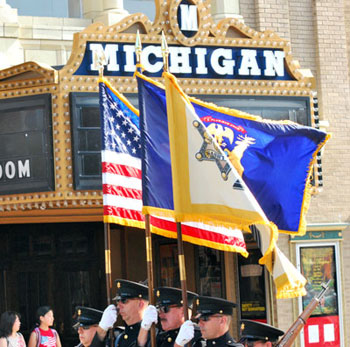
The color guard starts off the Ann Arbor July 4th parade, passing by the Michigan Theater on East Liberty. The theater is offering free admission to U.S. veterans all week.
It was likely the last parade as an elected official for Janis Bobrin, the Washtenaw County water resources commissioner who has served for more than two decades but is not seeking re-election.
This year is unusual because two judicial races are being contested in the 22nd Circuit Court, and three of the six candidates had entries in the parade.
The July 4th parade is organized each year by the Ann Arbor Jaycees. As parades go, it’s a relatively low-key affair, but this year included a rarity for the Ann Arbor parade – a marching band, from Skyline High School. Miss Washtenaw made an appearance, as did baton twirlers, boy scouts, the Masons, and an assortment of other groups representing a wide swath of this community.
Many of those groups are included in the photo essay below. But the photographs also include candidates for office, whose willingness to stand for election is a testament to our representative democracy, which we celebrate each year on this date.
If you’re not yet registered to vote, here’s a reminder that the last day to register for the Tuesday, Aug. 7 primary is nearly here – July 9. Information on voter registration can be found on the Washtenaw County clerk’s elections division website. To see a sample ballot for your precinct, visit the Secretary of State’s website. The last day to register to vote for the Tuesday, Nov. 6 general election is Oct. 9. [Full Story]
Sunday Funnies: Bezonki
Sunday Funnies: Bezonki
Column: UM’s Softball Winning Machine
This spring, the University of Michigan women’s softball team won its 15th Big Ten title, and fifth in a row. It went to the NCAA tournament – for the 18th straight season – and won its 14th NCAA regional crown, before losing on Friday in the super-regional to third-ranked Alabama.
In other words, just another typical season for Michigan softball – a team led by Carol Hutchins, one of Michigan’s best coaches, of any sport, in any era. Winning titles is what they do.
And this was not even one of Hutchins’ best teams.
That’s how well this machine runs – and make no mistake, it is a machine. Hutchins’ teams have won more Big Ten titles than the rest of the conference – combined. But it’s a machine she put together, part by part, one that took years of tinkering just to win her first race.
That Hutchins even got the chance was a bit of a miracle in itself. She grew up in Lansing, the fifth of six kids. Her own mom didn’t see the point in her playing sports, let alone competing. But Hutchins refused to quit. [Full Story]
Column: Learning How To Lose
Remember Field Day? For most of us, it was a hallowed year-end school tradition, right up there with ice cream socials, and signing yearbooks. The kids loved it, of course, and looked forward to it every year.
But not at Burns Park, one of Ann Arbor’s oldest, most desirable and most educated neighborhoods – and occasionally, one of its kookiest. There is a reason many townies jokingly refer to it as “The Republic of Burns Park.”
The Burns Park PTO might be the most active one in the state. In the late ’90s, some parents, led by a social work professor, decided the competitive spirit of Field Day was too much for the kids, and changed “Field Day” to “Friendship Day” – replacing foot races, long jumps and tug-of-wars with games that emphasized cooperation over competition.
A noble notion – but the kids hated it. During one event, a cross-section of students from all grades had to walk together on two long boards. The big kids kept yelling at the little ones to lift their left foot, then their right – but the first graders didn’t know which was which. They all fell over, and the first graders burst into tears.
I suspect that’s not exactly what the parents had in mind. [Full Story]
Column: The Gift of Growing Up
Teresa Bloodman’s son was thrilled to pass the first two tryouts for his Maumelle, Arkansas, high school freshman basketball team, which allowed him to play on the team for the first two months of the fall. But, when the football season ended, the coach held a third round of tryouts so the football players could come out for the team, and he cut Bloodman’s son.
Teresa Bloodman was so livid she sued the school, the district and the state. She claimed cutting her son was arbitrary, that the lack of a formal appeals process was a violation of due process, and that her son has a constitutional right to participate in school sports.
I can appreciate a mother’s pain seeing her son suffer a setback. And certainly, coaches make plenty of arbitrary decisions, even unfair ones. But if Bloodman wins this case, the rest of us will lose – especially her son.
Her lawyer wants the coach to use a quantitative evaluation system for tryouts – rating each candidate’s skill in dribbling, passing, and shooting, for example – to make the process more objective.
But only an idiot would pick a team on stats alone. [Full Story]
Column: How Title IX Changed Our Nation
This week, the University of Michigan celebrated the 40th anniversary of Title IX, with a host of speakers and panels discussing the historic legislation and its impact on girls, women and the United States itself.
It all started pretty quietly. Just a sentence buried in the back of the Education Amendments Act of 1972.
“No person in the United States shall, on the basis of sex, be excluded from participation in, be denied the benefits of, or be subjected to discrimination under any educational program or activity receiving federal financial assistance.”
Just a sentence – one that seems pretty straightforward to us, even self-evident. But that little line stirred up our society in ways that few pieces of legislation ever have. We call it Title IX – and perhaps only the Civil Rights Acts changed our nation the past century more dramatically – or did more good.
But nowhere in that powerful paragraph do the authors say one word about sports. It’s not really about sports, but educational opportunities. It says a lot about Americans’ unequaled belief in the value of school sports, that we consider them essential to a comprehensive education. [Full Story]




